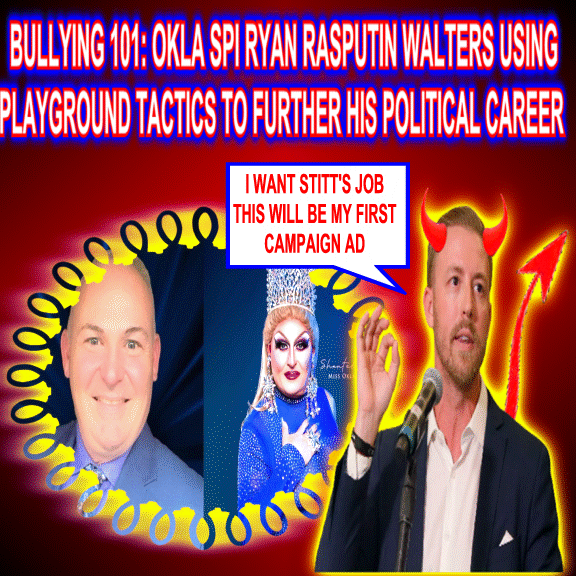VAPING IN SCHOOLS: ARE THOSE KIDS ON FIRE OR JUST VAPING
Vaping in schools has become a hot topic lately, and not just because those kids look like they're on fire. More and more, the dangers of vaping for kids are being learned, and it's time to take action.
First off, let's talk about the dangers. According to the CDC, vaping can expose users to harmful substances such as nicotine, heavy metals, volatile organic compounds, and ultrafine particles that can be inhaled deep into the lungs. That's right, kids, you're inhaling heavy metals. You might as well be eating paint chips.
But it's not just the heavy metals that are the problem. Vaping can also increase the risk of addiction, lung injury, heart disease, and cancer. So basically, if you're vaping, you're screwed.
So what can be done to prevent vaping in schools? Well, there are a few programs that can be implemented. One is called CATCH My Breath, which is a free, evidence-based program that targets students in grades 5 through 12 and teaches them about the health risks, social consequences, and marketing influences of vaping. Another is the Empower Vape-Free Youth Campaign from the FDA, which provides science-based resources on vaping prevention. And then there's SmokefreeTXT for Teens, a text-based program from the National Cancer Institute that helps young people quit tobacco use by sending them motivational messages, tips, and challenges.
But let's be real here. The best way to prevent vaping in schools is to make it uncool. And what's more uncool than being addicted to heavy metals? Nothing. So let's start a campaign to make vaping as uncool as possible. We can call it "Vaping is for losers" or "Vaping is so 2019." We'll get some celebrities on board, maybe some TikTok stars, and before you know it, vaping will be a thing of the past.
Of course, schools can also do their part by implementing anti-vaping policies and educating students about the dangers of vaping. And parents can talk to their children about the dangers of vaping and monitor their online activity. But let's face it, if we really want to stop kids from vaping, we need to make it as uncool as possible.
Now, some states are taking a more punitive approach to vaping in schools. A new law in Texas increases the punishment for students caught vaping in school, with offenders now being sent to alternative schools. School districts are concerned about the potential overload on the system and the effectiveness of this punitive approach. The law applies to both nicotine and THC vaping devices, with no appeal process for students. Some administrators feel that the punishment is disproportionate and may have lasting consequences for students.
Personally, I think we should take a different approach. Instead of punishing kids for vaping, we should help them quit. We could offer support programs and education on the dangers of vaping. We could even offer incentives for students who quit vaping, like free pizza or something.
In conclusion, vaping in schools is a serious issue that needs to be addressed. But instead of punishing kids for vaping, let's make it uncool. Let's start a campaign to show kids that vaping is for losers. And let's offer support programs and education to help kids quit. Because let's face it, heavy metal addiction is not a good look.
Youth vaping crisis is widespread in Ohio: Enquirer special report https://www.cincinnati.com/story/news/2023/09/27/youth-vaping-crisis-is-widespread-in-ohio-enquirer-special-report/70923386007/
Ban smoking and vaping in school to protect young people https://www.who.int/news/item/26-09-2023-ban-smoking-and-vaping-in-school-to-protect-young-people
What You Can Do to Protect Youth From the Harms of Vaping https://www.cdc.gov/tobacco/features/back-to-school/index.html
New state law makes punishment for vaping in school more serious https://sanantonioreport.org/vaping-school-new-texas-law/
Vaping a crisis for health, safety in our high schools https://www.wral.com/story/vaping-a-crisis-for-health-safety-in-our-high-schools/21058502/
Prince William Co. schools report surge in student vaping, marijuana | WJLA https://wjla.com/news/local/prince-william-county-public-schools-pwcps-students-vaping-marijuana-use-e-electronic-cigarettes-possession-pandemic-drugs-classrooms-prevention-efforts-substance-use-educational-programs-school-board-opioid-addiction-dmv-virginia-eduction
THE DEFT DIVE
**Vaping in schools**
Vaping is the act of inhaling and exhaling the aerosol, often referred to as vapor, which is produced by an e-cigarette or similar device. E-cigarettes are battery-powered devices that heat a liquid to produce an aerosol. The liquid typically contains nicotine, flavorings, and other chemicals.
Vaping has become increasingly popular among teenagers in recent years. In 2021, 11.7% of high school students and 3.3% of middle school students reported using e-cigarettes in the past 30 days.
There are a number of reasons why teenagers are vaping. Some teenagers vape because they think it is cool or because their friends are doing it. Others vape because they believe it is less harmful than smoking cigarettes. However, vaping is not safe. E-cigarette aerosol contains harmful chemicals, including nicotine, which can be addictive and can damage the developing brain.
Vaping is also a problem in schools. Students often vape in bathrooms, hallways, and other hidden places. School officials are struggling to keep up with the problem, and many schools have implemented anti-vaping policies.
**The impact of vaping on students**
Vaping can have a number of negative consequences for students, including:
- * Addiction: Nicotine is addictive, and vaping can lead to nicotine addiction. Nicotine addiction can be difficult to overcome, and it can interfere with academic performance, social relationships, and mental health.
- * Lung damage: E-cigarette aerosol contains harmful chemicals that can damage the lungs. Vaping has been linked to a number of serious lung conditions, including EVALI (e-cigarette or vaping product use-associated lung injury).
- * Other health problems: Vaping has also been linked to other health problems, such as heart disease, stroke, and cancer.
- * Academic performance: Vaping can interfere with academic performance by impairing concentration and memory.
- * Behavior problems: Vaping can also lead to behavior problems, such as irritability and aggression.
**What schools can do to prevent vaping**
School officials can take a number of steps to prevent vaping, including:
- * Implementing anti-vaping policies: Schools should have policies that prohibit vaping on school grounds and during school-sponsored events.
- * Educating students about the dangers of vaping: Schools should educate students about the health risks of vaping and the addictive nature of nicotine.
- * Providing support for students who are struggling with nicotine addiction: Schools should provide support for students who are struggling with nicotine addiction, such as counseling and nicotine replacement therapy.
**What parents can do**
Parents can also play a role in preventing their children from vaping. Parents can talk to their children about the dangers of vaping and set clear expectations about vaping. Parents can also monitor their children's online activity and be aware of the signs of nicotine addiction.
If you are concerned that your child may be vaping, talk to them about it. You can also contact your child's school to learn more about their anti-vaping policies and resources.
FROM BING AI
Vaping in schools is a serious issue that affects the health and well-being of students, teachers, and staff. According to the CDC, vaping can expose users to harmful substances such as nicotine, heavy metals, volatile organic compounds, and ultrafine particles that can be inhaled deep into the lungs¹⁴. Vaping can also increase the risk of addiction, lung injury, heart disease, and cancer⁷⁸⁹ [^10^] ¹¹.
To prevent vaping in schools, it is important to educate students, parents, and school personnel about the dangers of vaping and the resources available to help them quit or avoid starting. Some of the vaping prevention programs that can be implemented in schools are:
- - CATCH My Breath: This is a free, evidence-based program that targets students in grades 5 through 12 and teaches them about the health risks, social consequences, and marketing influences of vaping. The program also provides training for educators, parent resources, and youth empowerment opportunities¹²¹³.
- - Empower Vape-Free Youth Campaign: This is a campaign from the FDA that provides science-based resources on vaping prevention, such as expert advice, online and community resources, and tips on how to recognize vaping products that teens try to hide¹⁵.
- - SmokefreeTXT for Teens: This is a text-based program from the National Cancer Institute that helps young people quit tobacco use by sending them motivational messages, tips, and challenges. The program also connects them to a live quit coach and other support services¹⁶.
- - N-O-T: Not on Tobacco: This is a cessation program from the American Lung Association that is designed to help youth ages 14 to 19 quit e-cigarettes. The program uses a positive, youth-centered approach that focuses on healthy lifestyles, coping skills, and peer support¹⁴.
Bing, 9/28/2023
- (1) Empower Vape-Free Youth Campaign | Electronic Cigarettes | Smoking .... https://www.cdc.gov/tobacco/basic_information/e-cigarettes/vapefreeyouth.html.
- (2) 5 Vaping Facts You Need to Know | Johns Hopkins Medicine. https://www.hopkinsmedicine.org/health/wellness-and-prevention/5-truths-you-need-to-know-about-vaping.
- (3) Doctor's warning about dangers of vaping - Mayo Clinic Health System. https://www.mayoclinichealthsystem.org/hometown-health/speaking-of-health/a-doctors-warning-about-the-dangers-of-vaping.
- (4) Vaping: Health Risks, Side Effects, and More. https://www.health.com/is-vaping-bad-for-you-7494349.
- (5) The Health Risks of Vaping - Verywell Health. https://www.verywellhealth.com/the-health-risks-of-vaping-4686029.
- (6) Vaping (E-Cigarettes): What It Is, Side Effects & Dangers. https://my.clevelandclinic.org/health/treatments/21162-vaping.
- (7) Catch My Breath - Vape Education - Tobacco Youth Prevention. https://catch.org/program/vaping-prevention/.
- (8) SAMHSA-Recognized Youth Vaping Prevention Program - CATCH.org. https://letsgo.catch.org/pages/samhsa.
- (9) Vaping Prevention Resources | HHS.gov. https://digitalmedia.hhs.gov/tobacco/educator_hub.
- (10) What You Can Do to Protect Youth From the Harms of Vaping. https://www.cdc.gov/tobacco/features/back-to-school/index.html.
- (11) 'Found unconscious on the bathroom floor': Schools struggle to fight the youth vaping crisis. https://news.yahoo.com/found-unconscious-bathroom-floor-schools-023006558.html.
- (12) Vaping: Wells headteacher working to combat increased usage in schools. https://www.bbc.co.uk/news/uk-england-somerset-66924128.
- (13) Ban smoking and vaping in schools worldwide urges WHO. https://news.un.org/en/story/2023/09/1141442.
- (14) Ban smoking and vaping in school to protect young people. https://www.who.int/news/item/26-09-2023-ban-smoking-and-vaping-in-school-to-protect-young-people.
- (15) The youth vaping epidemic: Addressing the rise of e-cigarettes in schools. https://www.brookings.edu/articles/the-youth-vaping-epidemic-addressing-the-rise-of-e-cigarettes-in-schools/.
- (16) What are the effects of vaping on physical health?. https://microsoftstart.msn.com/en-us/health/ask-professionals/expert-answers-on-vaping/hp-vaping?questionid=m2vmcrcm&type=condition&source=bingmainline_conditionqna.
- (17) undefined. https://microsoftstart.msn.com/.









